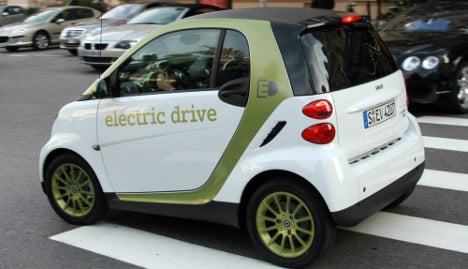Better known for its luxury Mercedes brand, Daimler’s tiny gasoline-powered Smart cars have been fixtures on German city streets for years. But the two vehicles handed over on Thursday will be powered solely by lithium-ion batteries that will take the vehicle a distance of 135 kilometres before needing to be recharged.
“I’ve always been a Smart fan and am proud that I can once again be trendsetter with my electro-Smart,” customer Rolf Bauer said upon getting the keys to his new ride.
Daimler said in a statement that the two Smarts delivered on Thursday represented only the first step in the carmaker’s global “e-mobility” programme, which intends to lease the small two-seater to corporate fleets, as well as business and private customers.
Besides Germany, the company is starting pilot projects with electric Smarts in Italy, Spain, England, France, Switzerland, Canada and the United States to test driver habits and vehicle-related services.
Drivers can charge the car’s lithium-ion battery at public charging stations or via a normal electrical socket while parked at home. Daimler is also hoping to innovate with the e-Smart’s “intelligent charging” system that bills the driver’s personal electricity provider regardless of where the car gets its juice.
“Along with modern driving technology we want to offer our customers the best possible service – we consider that simply part of developing groundbreaking forms of mobility,” said Daimler sales executive Harald Schuff.



 Please whitelist us to continue reading.
Please whitelist us to continue reading.
Member comments